[ad_1]
No 10 revives prospect of UK leaving European convention on human rights, saying ‘all options on table’
Downing Street has refused to rule out the UK withdrawing from the European convention on human rights to allow it to implement the Rwanda deportation policy more easily. At the post-PMQs briefing, asked if the UK could withdraw from the ECHR, the PM’s spokesperson said:
We are keeping all options on the table including any further legal reforms that may be necessary. We will look at all of the legislation and processes in this round.
This is more or less word for word what Boris Johnson said about this in a TV interview yesterday. But the significance of No 10 saying this now, when it has had almost 24 hours to prepare a line, is that it shows Downing Street is serious about floating this as an option. If Johnson thought he went too far yesterday, and wanted to downplay the prospects of the UK leaving the ECHR, the spokesperson could easily have given a briefing stressing this was most unlikely.
(And, realistically, ECHR withdrawal is unlikely. The Good Friday agreement, which Johnson professes to support, is based on the UK remaining committed to the convention, and the UK eventually agreed to include ECHR commitments in its Brexit deal with the EU.)
The No 10 line also suggests that Guy Opperman and Thérèse Coffey, the two ministers who played down the prospect of the UK leaving the convention in interviews this morning (see 9.39am), were freelancing, not delivering a No 10 message.
Early evening summary
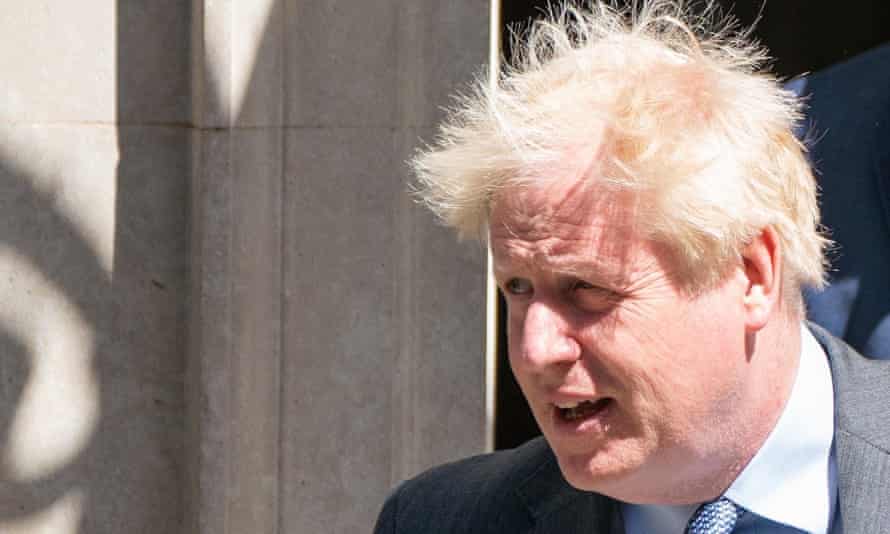
Labour frontbencher forced to disown comment saying party could take Britain back into single market
The Labour party has rejected claims that it would take Britain back into the single market. Today’s Sun reports that Anna McMorrin, a shadow justice minister, told a meeting with Labour activists: “I hope eventually that we will get back into the single market and customs union, and who knows then.”
According to the report, McMorrin said Labour said the party could not have that conversation at the moment, but she said that could change if Labour won the election.
A Labour party spokesperson said that McMorrin had been spoken to by Keir Starmer about her comments and that she was keeping her job after issuing a statement clarifying the party’s position. In it McMorrin said:
Labour policy on Brexit is clear. We have left the EU, Labour voted for the deal. Now it is the job of all of us to make it work.
The spokesperson said: “That is the Labour party position.”
Boris Johnson referred to McMorrin’s remarks when she asked a question at PMQs. (See 12.31pm.)
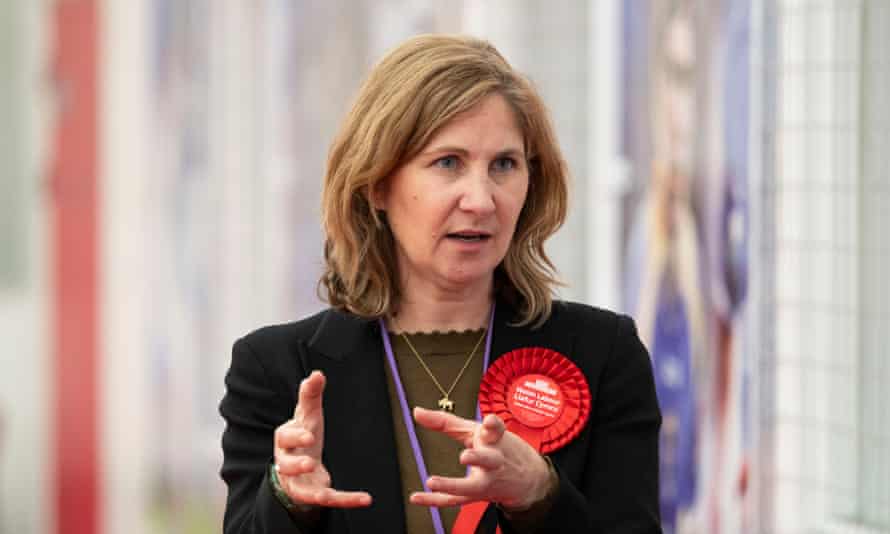
The Labour amendment to the government motion on the rail strikes (see 3.02pm) was easily defeated, and the government motion was passed by 293 votes to 15.
In the debate John McDonnell, who was shadow chancellor when Jeremy Corbyn was Labour leader, said unions were calling strikes because workers felt “real anxiety”. He explained:
It isn’t just about RMT. At every union conference I’ve been to there’s a real anxiety.
The big fear at the moment is that they are facing a potential avalanche of costs coming at them, they have had their wages largely frozen for 12 years, effectively a wage cut, they don’t see any light at the end of the tunnel, they see a Government now threatening intimidatory legislation to undermine further trade union rights.
It is because we have working class people frightened of their futures – deeply insecure about their futures and faced with a government, to be frank, on this particular issue, won’t even open the door for a meeting – that’s why this atmosphere’s been so foul at the moment.
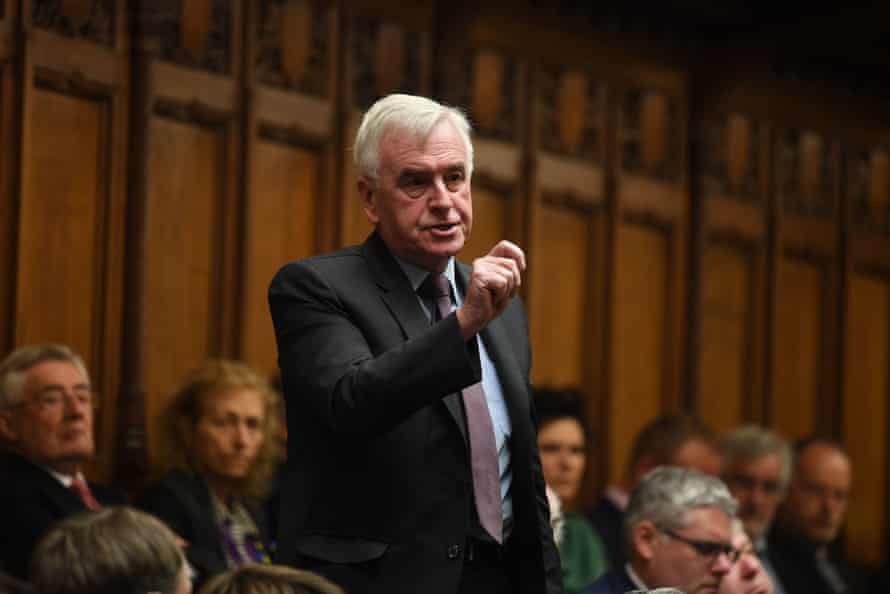
Sir Mike Penning, a Conservative former transport minister, told MPs in the debate that his constituents felt they were being punished for voting Tory. He said:
What is going on here is that we are being punished. My constituents are being punished by the Labour party that won’t come out against this strike.
I absolutely passionately believe that my constituents, and in the northern seats in particular, are going … to be punished because the British public dared to vote Tory … and the union barons hate it and so does the Labour party.
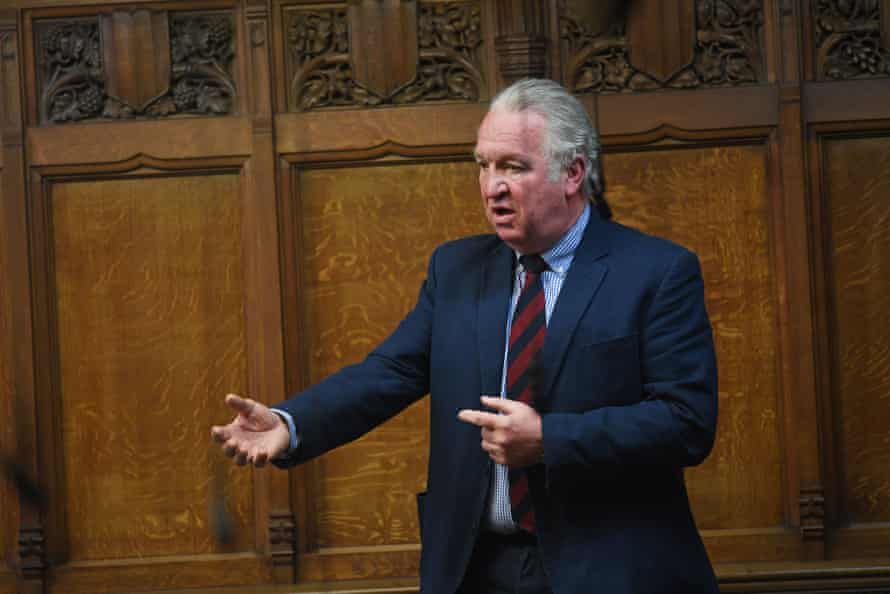
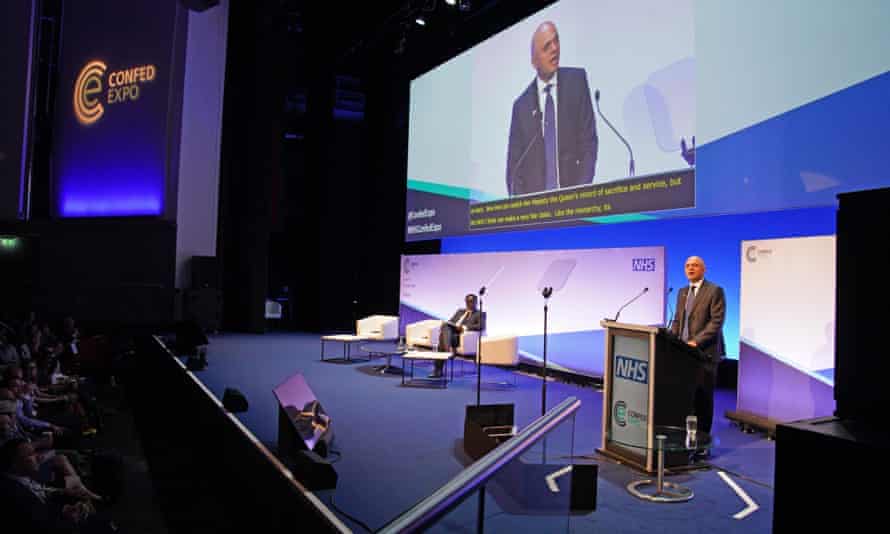
Finance ministers from the three devolved nations have urged the UK government to do more in helping those “most in need” during the cost-of-living crisis, PA Media reports. PA says:
Holyrood’s Kate Forbes, Stormont’s Conor Murphy and Rebecca Evans from the Welsh government and Simon Clark, the UK government’s chief secretary to the Treasury, met in Cardiff today.
The ongoing cost-of-living crisis was at the top of the agenda for the politicians as they attended a finance interministerial standing committee.
The ministers discussed what more could be done to assist people and businesses in coping with the soaring costs of food, fuel and energy as inflation rises.
It comes after a warning from Ofgem that consumers could be facing yet another increase to their energy bills, with costs set to rise by around £800 per year in October.
The three finance ministers joined forces to call on Westminster to use the powers available to do more in the way of support for those struggling.
In a statement afterwards Forbes, Scotland’s finance secretary, said:
As we continue our economic recovery from the pandemic and the ongoing cost-of-living crisis, we must firmly focus government and public sector resources on delivering clear priorities, including tackling child poverty, growing the economy and meeting our climate change targets.
While we are doing all we can with the finite financial resources and limited powers currently available to us to tackle the rising cost of living, the UK Government needs to use the powers at its disposal to help those most in need, including low-income households and families with children as well as businesses.
Murphy and Evans issued similar statements.
Sir Jonathan Jones, who resigned as head of the government’s legal department over the internal market bill, which as orginally drafted included provisions in relation to the Northern Ireland protocol that broke international law, has written an article for the House magazine saying the new Northern Ireland protocol bill is far more extreme. He also says the legal argument used to justify it is “hopeless”. He explains:
The government justifies this on the basis of the international law doctrine of “necessity” – that “the legislation is currently the only way to provide the means to alleviate the socio-political conditions” in “the challenging, complex and unique circumstances of Northern Ireland”.
Like most legal commentators, I regard this explanation as hopeless.
The concept of “necessity” is an extremely high test. It applies only where a state must act to safeguard its essential interests against “grave and imminent peril”.
How can an agreement willingly entered into only in 2020, at what the prime minister described as a “fantastic moment”, be already proving so disastrous as to represent “grave peril” to the country?
In a post on his Facebook page at 10.29pm last night Jonathan Gullis, the Conservative MP for Stoke-on-Trent North, Kidsgrove and Talke, said the Rwanda deportation flight decision showed why the UK needed to withdraw from the European convention on human rights. He said:
I know many of you across Stoke-on-Trent North, Kidsgrove & Talke will be frustrated that the first flight of illegal economic migrants to Rwanda has not been able to happen.
This policy was always going to face mass action from lefty lawyers and activists.
It is clear that the ECHR prevented the flight from departing, after efforts in U.K. courts were exhausted. The ECHR has no place in the U.K. judicial system.
The government needs to free itself from it entirely!
But, about an hour later, he amended the post, removing the final sentence saying the UK should withdraw from the ECHR and instead replacing it with: “The ECHR’s role in U.K. law needs looking at urgently!”
As Adam Payne writes at Politics Home, Gullis’s decision to drop his call for withdrawal from the ECHR is linked to the fact that the a commitment to the ECHR is embedded in the Good Friday agreement, which the government is committed to supporting. Gullis is parliamentary private secretary to Brandon Lewis, the Northern Ireland secretary.
The link between the ECHR and the Good Friday agreement makes it hard to see how the UK could withdraw from the convention, at least in the short to medium term. But if Boris Johnson considered the Good Friday agreement an overwhelming priority, he would probably never have backed Brexit in the first place and, as this week’s events have shown, his respect for international obligations is not absolute.
Sir Robert Buckland, the former justice secretary, has said it would be a mistake for the Conservative party to abandon its commitment to the European convention on human rights.
“I don’t think it’s right for us, as a party, to abandon our historic commitments to the European convention. It was British Conservative lawyers who wrote it after the war”
Conservative MP Sir Robert Buckland QC on the European Court of Human Rightshttps://t.co/GwLzvEkxGN pic.twitter.com/oh1NOOtA3b
— BBC Politics (@BBCPolitics) June 15, 2022
The UK government has said it is “disappointing” that the EU has chosen to revive its legal action over the Northern Ireland protocol. Darren McCaffrey from GB News has the full quote.
UPDATE: UK government formally responds to EU #Brexit
“the proposals set out by the EU today are the same proposals we have been discussing for months and would not solve the problems – in many cases they take us backwards from current arrangements” pic.twitter.com/8AafpyqyOV
— Darren McCaffrey (@darrenmccaffrey) June 15, 2022
Harman under pressure to withdraw from privileges committee inquiry into claims PM lied to MPs over anti-Johnson tweets
The Labour MP Harriet Harman is under pressure to withdraw as chair of the Commons privileges committee, which is about to launch its inquiry into claims Boris Johnson lied to parliament about Partygate, the Telegraph’s Christopher Hope reports.
Harman, the former Labour deputy leader who chairs the joint committee on human rights, was appointed to the committee to replace Chris Bryant, the former chair who stood down because he was on record as saying Johnson did lie, which meant he felt he was not in a position to head the inquiry impartially.
In his story Hope says Harman is now being urged by Tory MPs to quit because of tweets she posted in April. In one she said that, if Johnson accepted a fine, he would be admitting having misled the Commons. In another she commented approvingly on a tweet by Alastair Campbell, Tony Blair’s former press secretary, saying Johnson lied. And in a third she commented on a tweet saying polling showed 75% of people thought Johnson lied; Harman wondered why, in that case, only 57% said he should quit.
Harman did not respond to the Telegraph’s request for a comment.
I’ve amended the post at 11.44am because originally it said that the EU description of its plan to change the way the Northern Ireland protocol operates as effectively creating an “express lane” sounded like an attempt to match the “green lane” concept in the UK’s Northern Ireland protocol bill. In fact, the EU was using the “express lane” label when it floated these plans last year.
The Liberal Democrats plan to flood Tiverton and Honiton with activists after internal polling suggested the party was only marginally trailing the Conservatives before next week’s byelection in the Devon constituency, my colleague Peter Walker reports.
In her World at One interview Suella Braverman, the attorney general, defended the lawyers representing asylum seekers fighting deportation to Rwanda. She said:
I’m always going to support lawyers who take on difficult cases and it is of crucial importance that they are free to do so. That is the cab rank rule … that is the golden thread running through the profession.
When it was put to her that her words were at odds with what Boris Johnson told cabinet yesterday, when he implied that the lawyers opposing the deportations were “abetting the work of criminal gangs”, she said that she wasn’t sure Johnson used that phrase and she suggested he was being misquoted. (Johnson did use that phrase, and he wasn’t being misquoted.)
Braverman also refused to comment on claims that, in an unsual move, Sir James Eadie, who as first Treasury counsel is the government’s most senior legal adviser, was not asked to advise on whether the Northern Ireland protocol bill was lawful. She said there was a convention that meant she could not discuss legal advice to the government.
MPs debate government motion condemning rail unions for calling strikes next week
In the Commons MPs are now debating a government motion condemning the decision by rail unions to go on strike next week. The debate was scheduled at short notice (it was only announced yesterday) and it will have no practical impact (unlike the second reading debate for the genetic technology [precision breeding] bill, which is coming later, but which will get less time because of the rail debate). But it will allow the Tory MPs to spend half the afternoon claiming that Labour is backing the strikes.
In his opening speech, Grant Shapps, the transport secretary, said Labour should be condemning the strike. He said:
It is inexplicable how the party who style themselves as the workers’ party don’t seem to care about the fact that these people, that anyone that is trying to get anywhere, will lose pay.
But at PMQs Boris Johnson’s attempts to saddle Labour with the blame for the rail strike did not seem very successful (see 12.16pm) and it is not obvious that this debate will do the job any more effectively. Louise Haigh, the shadow transport secretary, opened the debate for Labour. She said Labour did not want the strike to go ahead, and that ministers should be intervening in talks to find a solution.
We are on the eve of the biggest rail strike in a generation.
And ministers haven’t spent a single second in talks since March.
Instead of grandstanding, it’s time they get round the table and sort this out. pic.twitter.com/JUIDKjZWpE
— Louise Haigh (@LouHaigh) June 15, 2022
Here is the government motion.
That this house recognises the vital role of the railways in supporting people and businesses across the UK every day; condemns the decision of the rail unions to hold three days of strikes; believes those strikes will adversely affect students taking examinations, have an unacceptable effect on working people and a negative effect on the economy; and calls on the rail unions to reconsider their strike action and continue discussions with the industry.
And here is Labour’s amendment.
Leave out from ‘house’ to end and add ‘does not want the national rail strikes to go ahead; and therefore urgently calls upon the government, operators, network rail and the union to get around the table and resolve the issues on pay and cuts to safety staff to avert industrial action’.
At Labour’s post-PMQs briefing, Keir Starmer’s spokesperson refused to commit Labour to abandoning the policy of deporting some asylum seekers to Rwanda. This is from my colleague Jessica Elgot.
Starmer’s spokesman has declined to say whether Labour would cancel the Rwanda policy if in government, though deeply critical of the policy’s cost and efficiency. But declines to clarify if Starmer believes it is morally wrong.
— Jessica Elgot (@jessicaelgot) June 15, 2022
Labour is determined to avoid saying anything that would make it easier for the Tories to accuse the party of being soft on immigration. But, as Robert Hutton from the Critic points out, in this case Yvette Cooper’s criticism of the policy has been so overwhelming (see 12.58pm) that it is very hard to imagine circumstances in which Labour would maintain the policy.
This is slightly baffling, as no one listening to Yvette Cooper speaking in the Commons at the same time would have come away thinking that Labour was going to keep the policy. https://t.co/roJDYHvYeu
— Robert Hutton (@RobDotHutton) June 15, 2022
Government ‘definitely open to assessing’ options for future relationship with ECHR, says Braverman
In an interview on the World at One, Suella Braverman, the attorney general, said the government was “definitely open to assessing” what its options were in relation to the European convention on human rights. Asked if withdrawal was an option, she replied:
Well the government has been clear in the media aftermath of the ruling issued by the [European court of human rights] that all options are on the table. So we’re not ruling anything in and we’re not ruling anything out.
I think what is clear is it’s a very frustrating situation that we find ourselves in … Many people will have assumed that we took control back of our borders when we left the European Union.
It is a decision that has caused a setback. That’s clear to see. We are considering our response in relation to that decision but more broadly we are definitely open to assessing all options available as to what our relationship should be going forward with the [ECHR].
(Of course, as Braverman knows, the convention and the European court of human rights are not related to EU membership.)
[ad_2]




